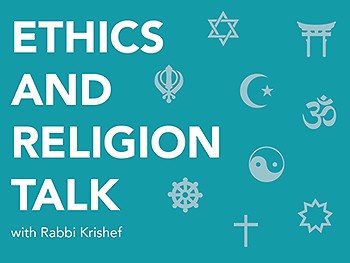RL asks the panel to respond to this article - https://www.bbc.com/worklife/article/20190715-how-to-escape-the-hyperactive-hivemind-of-modern-work. An excerpt:
“The constant ping of messages that keep us plugged into work chatter might be doing more harm than good…. But how do we find the time to shut off distractions and do our best work?
“Some people swear by multitasking even when we intuitively know that our brains struggle to concentrate on more than one thing at a time…. Our brains have a limited capacity for what they can work on at any given moment. And using tricks to cram as much into our working day as possible might be doing more harm than good.”
The Rev. Rachel J. Bahr, pastor of Plymouth UCC, responds:
“Efficiency as a value of the modern workplace is often incongruent with ministry. One of the problems with the manufacturing model is that it works better when you have a project to produce. In ministry there isn’t a discreet product that is attainable within three days. The communities we are connected to are diverse, and the ministry that we are a part of as a result of the relationships with complex humans means we at times must use our time and resources in different ways. Sometimes we can sprint, often we must multi-task, and less frequently we are afforded the space to go deep with concentrated focus. Examples of this include mission experiences in another country, or retreats where the participants are able to set aside the busyness of their lives. Perhaps the emergent church ministries that we are seeing more recently are responding to this dilemma.”
Ty Silzer, a former pastor in the Presbyterian Church in America, responds:
“You, me, we have limits. And, not coincidentally, our limits are connected to our health. So, first, some practical in relational and physical health. The average human stores about 150 people in her or his head (not the hundreds of friends we have on social networks). And we have limited attention—trying to divide it by plugging into every single messenger, news outlet, and miscellaneous distraction takes a precious resource and leaves even less of it for the people we truly care about. Its not the focus of this column to delve into science, but the eyestrain of constant screen access including the nocturnal hours is killing us, physically, beyond.
“There’s a deeper lie we both tell ourselves and believe that “we can do it all.” We can’t. There are many ways to understand Jesus’ “What does it profit a man to gain the world, but to lose his soul?”, but I’ll suggest attempting to have our fingers in everything is a manner of gaining the world, and as we have less to give to the people and activities that truly matter, we lose more and more of our souls. Our spiritual health. The saints of antiquity practiced silence, solitude, and simplicity. Paul says ‘…make it your ambition to lead a quiet life: You should mind your own business…’ (1 Thessalonians 4.¹¹). Relevant words for our age.
“Finally, as this article points out, there’s a health tied to fulfillment, and without intention, we’re getting farther and farther away from it.”
Chris Curia, the Director of Youth Ministries at Fairway Christian Reformed Church, responds:
“In response to the central question of the article, I would agree that “always being switched on means that we never have the chance to think deeply” about life and the innovations that could revolutionize our society.
“In terms of my own practice, I shut off distractions by adapting to what I call a ‘monastic workplace’ approach. I begin my day by outlining my to-be-completed tasks and allotted time for each of them. Like the monks, in my work, I try not to go over an hour on a given task or project. If the task requires more hours of me, the most I will give it in a work day is two, otherwise I plan on working on it a different day of the week. I usually wrap up whatever I’m working on 5-10 minutes before the beginning of the next hour so I have time to reset, catch my breath, and switch my mental focus from one task to the next.
“When I’m not at work, I do my best not to answer work emails. I’ve taken notifications off my phone so that I’m not tempted to answer them. If texts or calls come to me after-hours, I usually give myself 24 hours to respond to them, unless it is an emergency. On my off days, I am totally unreachable.
“As the article concludes, being wired for work all the time leads to burnout. The apostle Paul similarly writes that although everything is permissible, not everything is beneficial (1 Cor. 10:23). It is imperative to set boundaries that respect yourself while still meeting work expectations. And if the workplace promotes workaholism, it might be worth finding a new job that treats you like a whole person and not just a producer.”
This column answers questions of Ethics and Religion by submitting them to a multi-faith panel of spiritual leaders in the Grand Rapids area. We’d love to hear about the ordinary ethical questions that come up in the course of your day as well as any questions of religion that you’ve wondered about. Tell us how you resolved an ethical dilemma and see how members of the Ethics and Religion Talk panel would have handled the same situation. Please send your questions to [email protected].
The Rapidian, a program of the 501(c)3 nonprofit Community Media Center, relies on the community’s support to help cover the cost of training reporters and publishing content.
We need your help.
If each of our readers and content creators who values this community platform help support its creation and maintenance, The Rapidian can continue to educate and facilitate a conversation around issues for years to come.
Please support The Rapidian and make a contribution today.
